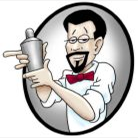I'm a licensed Aircraft Mechanic & Inspector with twenty five-plus years in the field. I've had a varied career so far, with time spent in the sheetmetal, mechanic, and inspection specialties. Most of my time is on heavy Boeing and McDonnell Douglas aircraft, of the passenger, cargo, and experimental type. This career isn't for everyone, but I enjoy it.
Please do NOT ask me to troubleshoot problems with your airplane, that is not what this Q&A is for.
That was part of a 6 part question that someone asked about plugged up pitot static tubes. I put my answer to them on the 6th part of the question. I deleted parts 1 through 4 already, and must have missed the part 5.
Thank you for your concern. I will delete it now.
I don’t really know about what they do on passenger flights. I know on the cargo flights, we used to step back into the cargo bay for a smoke. But that was a long time ago.
Got any actual career related questions for me? Anyone?
Look. I’m not going to get into an argument with you. You could very easily educate yourself about the aircraft type if you wish.
They don’t use DC-10s for passenger use much anymore for the same reason you don’t see 747-100’s and -200’s out there flying passengers much.
Economics.
Newer aircraft can fly the same amount of people for less money in operating and maintenance costs. That’s all aviation is really. It’s a money game.
Why don’t they fly 707s or DC-8s anymore in passenger mode? Money.
Why are they parking so many of the much newer A380 aircraft? Money.
If you ever see an older aircraft out there flying revenue flights; it’s because someone figured out a niche market where it makes financial sense to do it. Like Buffalo Air and their DC-3s.
If you are referring to the 737 Max aircraft, I think better experts than me have written extensively about the issue.
A quick synopsis, I suppose, would be that Boeing wanted to upgrade the 737 series to a certain level of performance and efficiency, which required re-engining the aircraft, among other things.
Then several “needs” of the program started colliding.
In order to make the new model more appealing to airlines, Boeing promised that no new flight training would be needed for the crews.
Then the new engine just wouldn’t fit in the same profile space as the old engine. So the pylon has to be redesigned. Which put the engine a little forward and higher than the old one. This changed the c/g of the aircraft slightly, and placed the thrust point a little different.
This made the aircraft handle a little differently. But in order to make good on their promise to the airlines, Boeing had to make the plane handle exactly like the old one. Which now required complicated systems to compensate for the design changes.
Cap that off with the FAA handing off the engineering design and test approvals to internal Boeing designers, and you have effectively no oversight of the program.
Now the planes get out into the hands of the commercial operations, and the systems don’t work exactly right, or a sensor has failure issues; and these pilots who are expecting to treat the new plane just like the old one, have problems.
Basically, the new system had to compensate for a tendency for the new plane to go “nose up” under heavy thrust, causing a stall condition. But the system often corrected too aggressively, causing the plane to lose altitude and pitch nose down.
And you know the result. Two of the flight crews were unable to override that automatic system in time to avoid a crash.
It’s sad. Especially because it was avoidable.
Swim Instructor
Casting Director
 Are the melt-down auditions on American Idol staged?
Are the melt-down auditions on American Idol staged?
Bartender
 Which customers are the worst tippers?
Which customers are the worst tippers?
Mandatory masks on passenger planes are a GOOD thing.
Even when there is no scary pandemic, passenger planes are a good place to get sick.
So yeah. Wear a mask, people. Wash your hands. Don’t touch your face.
I love that you asked a question. But questions like that, I would just have to google, and read articles to try and find you an answer.
So let’s skip the middle man, and have you do that.
Cheers
The VHF radios in the cockpit can pick up some radio stations. But I’ve never heard them played over the PA system.
-OR-
 Login with Facebook
Login with Facebook (max 20 characters - letters, numbers, and underscores only. Note that your username is private, and you have the option to choose an alias when asking questions or hosting a Q&A.)
(A valid e-mail address is required. Your e-mail will not be shared with anyone.)
(min 5 characters)
By checking this box, you acknowledge that you have read and agree to Jobstr.com’s Terms and Privacy Policy.
-OR-
 Register with Facebook
Register with Facebook(Don't worry: you'll be able to choose an alias when asking questions or hosting a Q&A.)